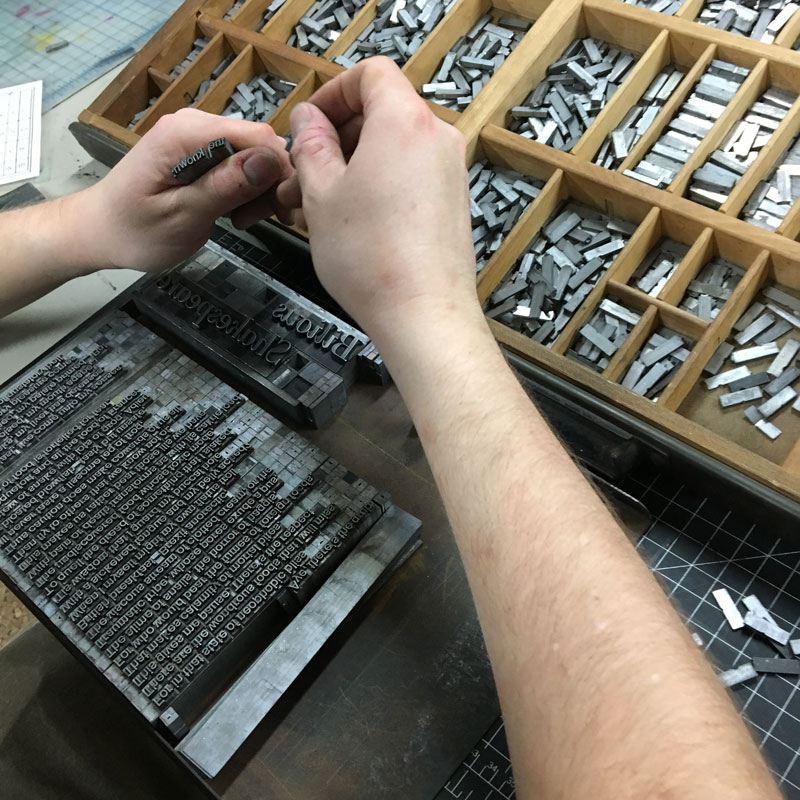Letterpress Printing
Letterpress printing is a
technique of relief printing using a printing press,
a process by which many copies are produced by repeated direct
impression of an inked, raised surface against sheets or a continuous
roll of paper. A worker composes and locks movable type into the "bed"
or "chase" of a press, inks it, and presses paper against it to transfer
the ink from the type which creates an impression on the paper.

1.Block
A block is an illustration or drawing that has been engraved on
a thin metal plate and mounted on a wood or metal base to match the
height of type. A block can also be an engraving directly on a wood
block. Wood type letters are also wooden blocks with an engraved
character.

2. Composition Rollers
A composition roller is a tool used in Letter press printing to
apply ink to a bed of type in a printing press. It consists of a
cylinder made of a substance known as "roller composition" or simply
"composition", a mixture of glue and sugar (in the form of molasses or
treacle), with various additives such as glycerin depending on the
particular recipe. Early recipes also included gypsum plaster and tar,
though these were eventually found unnecessary.

3.Chase
A chase is a heavy steel frame used to hold type in a
letterpress Most of the space in the chase not occupied with type is
filled with blocks of wood called furniture. The type and furniture are
locked in place by quoins. When a chase is locked up with type,
furniture, and quoins, it is called a form.

4.Platen
A platen (or platten) is a flat platform with a
variety of roles in printing or manufacturing. It can be a flat metal
(or earlier, wooden) plate pressed against a medium (such as paper) to
cause an impression in letterpress printing. Platen may also refer to a
typewriter roller which friction-feeds paper into position below the
typebars
or print head, it can refer to the glass surface of a copier, or it can
refer to the rotating disk used to polish semiconductor wafers.

No comments:
Post a Comment